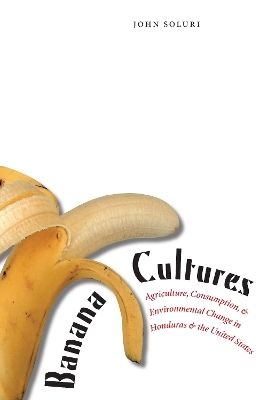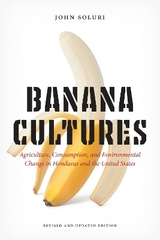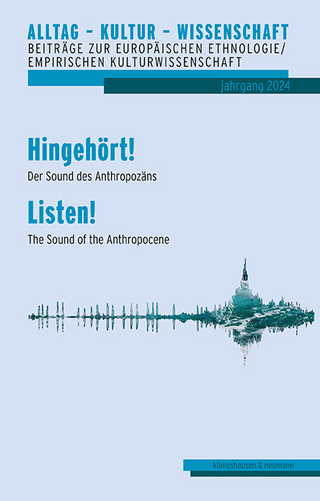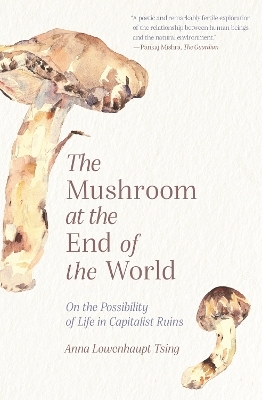
Banana Cultures
Agriculture, Consumption, and Environmental Change in Honduras and the United States
Seiten
2006
University of Texas Press (Verlag)
978-0-292-71256-0 (ISBN)
University of Texas Press (Verlag)
978-0-292-71256-0 (ISBN)
- Titel erscheint in neuer Auflage
- Artikel merken
Zu diesem Artikel existiert eine Nachauflage
Integrates agro-ecology, anthropology, political economy, and history to trace the symbiotic growth of the export banana industry in Honduras and the consumer mass market in the United States. This title examines the tensions between the small-scale growers, who dominated the trade in the early years, and the shippers.
Winner, George Perkins Marsh Award for Best Book in Environmental History, American Society for Environmental History, 2007 Bananas, the most frequently consumed fresh fruit in the United States, have been linked to Miss Chiquita and Carmen Miranda, "banana republics," and Banana Republic clothing stores-everything from exotic kitsch, to Third World dictatorships, to middle-class fashion. But how did the rise in banana consumption in the United States affect the banana-growing regions of Central America? In this lively, interdisciplinary study, John Soluri integrates agroecology, anthropology, political economy, and history to trace the symbiotic growth of the export banana industry in Honduras and the consumer mass market in the United States. Beginning in the 1870s when bananas first appeared in the U.S. marketplace, Soluri examines the tensions between the small-scale growers, who dominated the trade in the early years, and the shippers.
He then shows how rising demand led to changes in production that resulted in the formation of major agribusinesses, spawned international migrations, and transformed great swaths of the Honduran environment into monocultures susceptible to plant disease epidemics that in turn changed Central American livelihoods. Soluri also looks at labor practices and workers' lives, changing gender roles on the banana plantations, the effects of pesticides on the Honduran environment and people, and the mass marketing of bananas to consumers in the United States. His multifaceted account of a century of banana production and consumption adds an important chapter to the history of Honduras, as well as to the larger history of globalization and its effects on rural peoples, local economies, and biodiversity.
Winner, George Perkins Marsh Award for Best Book in Environmental History, American Society for Environmental History, 2007 Bananas, the most frequently consumed fresh fruit in the United States, have been linked to Miss Chiquita and Carmen Miranda, "banana republics," and Banana Republic clothing stores-everything from exotic kitsch, to Third World dictatorships, to middle-class fashion. But how did the rise in banana consumption in the United States affect the banana-growing regions of Central America? In this lively, interdisciplinary study, John Soluri integrates agroecology, anthropology, political economy, and history to trace the symbiotic growth of the export banana industry in Honduras and the consumer mass market in the United States. Beginning in the 1870s when bananas first appeared in the U.S. marketplace, Soluri examines the tensions between the small-scale growers, who dominated the trade in the early years, and the shippers.
He then shows how rising demand led to changes in production that resulted in the formation of major agribusinesses, spawned international migrations, and transformed great swaths of the Honduran environment into monocultures susceptible to plant disease epidemics that in turn changed Central American livelihoods. Soluri also looks at labor practices and workers' lives, changing gender roles on the banana plantations, the effects of pesticides on the Honduran environment and people, and the mass marketing of bananas to consumers in the United States. His multifaceted account of a century of banana production and consumption adds an important chapter to the history of Honduras, as well as to the larger history of globalization and its effects on rural peoples, local economies, and biodiversity.
JOHN SOLURI is Associate Professor of History at Carnegie Mellon University in Pittsburgh.
Preface Acknowledgments Introduction. Linking Places of Production and Consumption Chapter 1. Going Bananas Chapter 2. Space Invaders Chapter 3. Altered Landscapes and Transformed Livelihoods Chapter 4. Sigatoka, Science, and Control Chapter 5. Revisiting the Green Prison Chapter 6. The Lives and Time of Miss Chiquita Chapter 7. La Quimica Chapter 8. Bananas Cultures in Comparative Perspective Notes Bibliography Index
| Zusatzinfo | 25 figures, 5 maps, 2 tables |
|---|---|
| Verlagsort | Austin, TX |
| Sprache | englisch |
| Maße | 152 x 229 mm |
| Gewicht | 572 g |
| Themenwelt | Sozialwissenschaften ► Ethnologie |
| Sozialwissenschaften ► Soziologie | |
| Weitere Fachgebiete ► Land- / Forstwirtschaft / Fischerei | |
| ISBN-10 | 0-292-71256-1 / 0292712561 |
| ISBN-13 | 978-0-292-71256-0 / 9780292712560 |
| Zustand | Neuware |
| Haben Sie eine Frage zum Produkt? |
Mehr entdecken
aus dem Bereich
aus dem Bereich
Wert, Tausch und menschliches Handeln
Buch | Softcover (2023)
diaphanes (Verlag)
CHF 39,20
Buch | Softcover (2024)
Königshausen u. Neumann (Verlag)
CHF 39,20
On the Possibility of Life in Capitalist Ruins
Buch | Softcover (2021)
Princeton University Press (Verlag)
CHF 27,90



